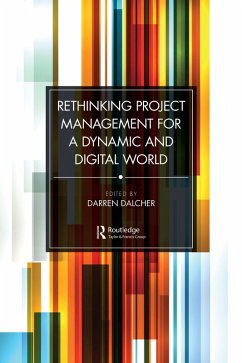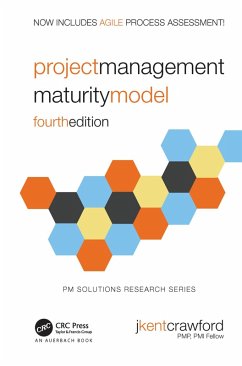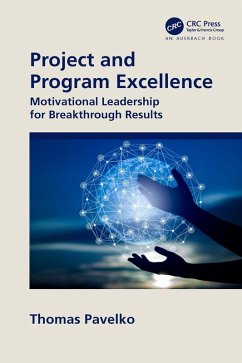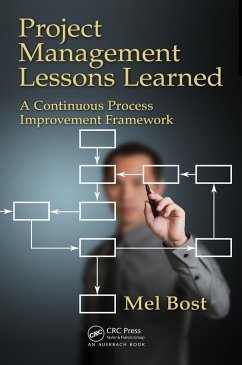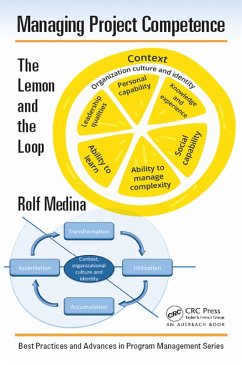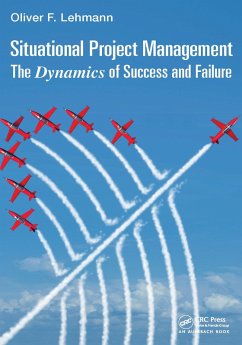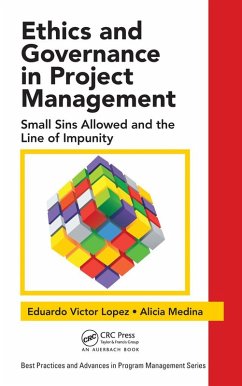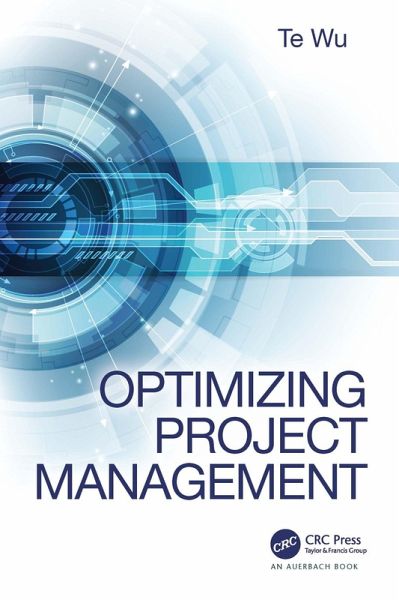
Optimizing Project Management (eBook, PDF)
Versandkostenfrei!
Sofort per Download lieferbar
39,95 €
inkl. MwSt.
Weitere Ausgaben:

PAYBACK Punkte
20 °P sammeln!
SHELVING GUIDE: Project ManagementThis hands-on guide is written for project professionals seeking to find an optimized way of performing project management. It provides answers to such critical questions as: Why should an organization apply project management? What is the value of project management in the broader context of an organization? Is project management as successful as some advocates suggested or is it a waste of time and resources because of the many extensive and bureaucratic processes? Which project management approach should our project team adopt: predictive or adaptive, water...
SHELVING GUIDE: Project Management
This hands-on guide is written for project professionals seeking to find an optimized way of performing project management. It provides answers to such critical questions as:
This book aims to provide an optimized view of project management by balancing and blending competing methodologies (e.g., traditional versus Agile), lengthy methodologies and broad principles, processes and practices, and the need to understand versus the need to apply. It includes project management templates, an integrated case study illustrating how to apply tools and concepts, and a glossary of key terms.
Optimizing Project Management is for both aspiring and practicing project management professionals. It covers the core concepts, practices, and skills that are useful for developing new ideas, planning activities, implementing projects, and conducting planning and controlling of schedule, budget, and scope. The text is particularly useful for students, project professionals wanting to refresh their knowledge, and those pursuing project management certifications. This book is aligned with common project management standards such as the Project Management Body of Knowledge and the ISO 21502: Project, Programme and Portfolio Management - Guidance on Project Management.
This hands-on guide is written for project professionals seeking to find an optimized way of performing project management. It provides answers to such critical questions as:
- Why should an organization apply project management?
- What is the value of project management in the broader context of an organization?
- Is project management as successful as some advocates suggested or is it a waste of time and resources because of the many extensive and bureaucratic processes?
- Which project management approach should our project team adopt: predictive or adaptive, waterfall or rolling water, extreme programming or Scrum?
This book aims to provide an optimized view of project management by balancing and blending competing methodologies (e.g., traditional versus Agile), lengthy methodologies and broad principles, processes and practices, and the need to understand versus the need to apply. It includes project management templates, an integrated case study illustrating how to apply tools and concepts, and a glossary of key terms.
Optimizing Project Management is for both aspiring and practicing project management professionals. It covers the core concepts, practices, and skills that are useful for developing new ideas, planning activities, implementing projects, and conducting planning and controlling of schedule, budget, and scope. The text is particularly useful for students, project professionals wanting to refresh their knowledge, and those pursuing project management certifications. This book is aligned with common project management standards such as the Project Management Body of Knowledge and the ISO 21502: Project, Programme and Portfolio Management - Guidance on Project Management.
Dieser Download kann aus rechtlichen Gründen nur mit Rechnungsadresse in A, B, BG, CY, CZ, D, DK, EW, E, FIN, F, GR, HR, H, IRL, I, LT, L, LR, M, NL, PL, P, R, S, SLO, SK ausgeliefert werden.





